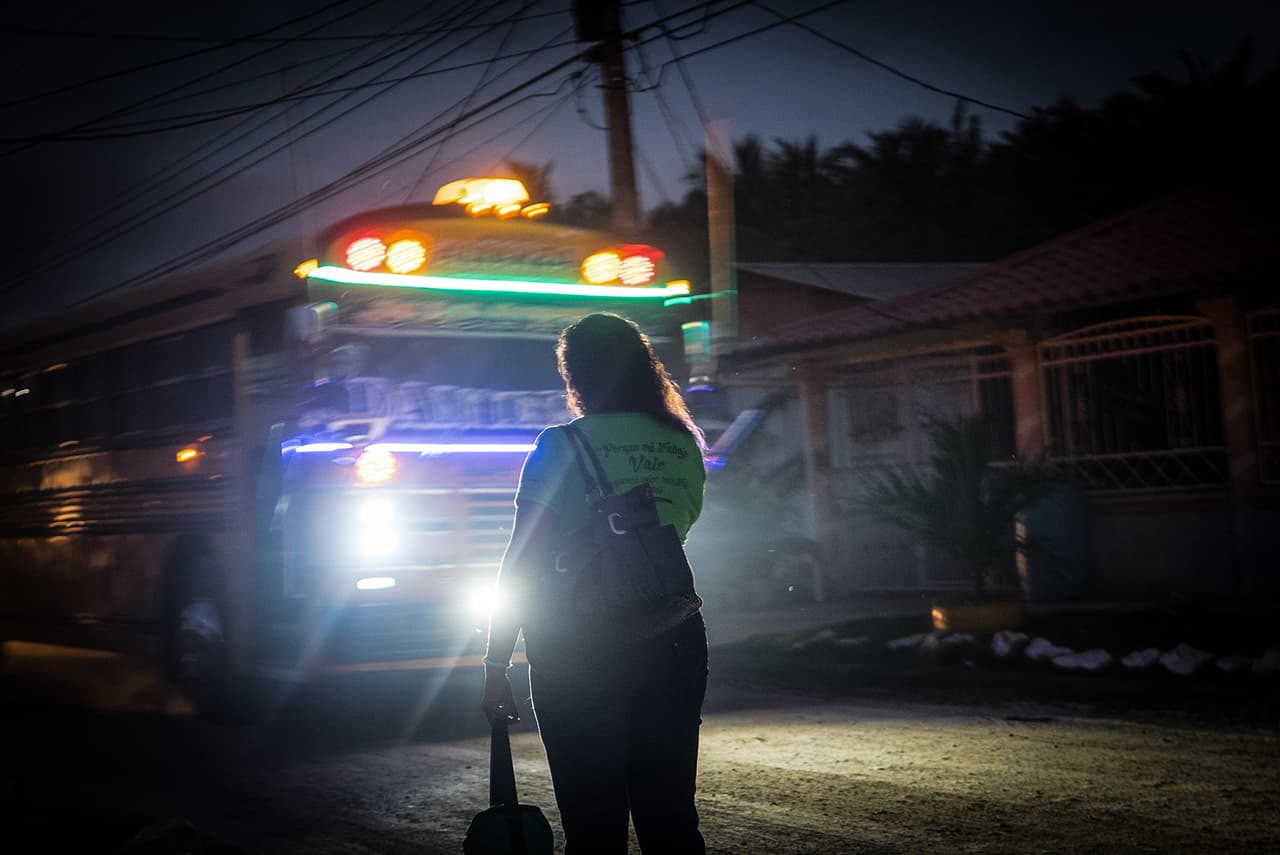LA LIMA, Honduras.- Before dawn, Norma Gómez, 52, hurried into her bedroom, grabbed an old t-shirt with the phrase ‘Because my work matters’ printed on the back, and put it on before kissing her grandson goodbye. On this day, she would not be needing her uniform.
$14 for 12 hours of work: behind each banana in Honduras there is a poorly paid peasant
Chiquita, the main exporter of bananas from Honduras to the United States, faces accusations of labor exploitation. Their employees complain about low salaries and risky work conditions.
A banana plantation worker in La Lima, Honduras, half an hour away from the northern city of San Pedro Sula, Gómez is one of the 2,800 employees of Chiquita Brands International who began striking last December when the company moved its private health clinic more than an hour away from the farmers’ homes.
Chiquita, one of the biggest fruit companies in La Lima, and is the leading banana exporter to the United States. With high production rates and little attention to conditions in the fields, Chiquita faces accusations of exploiting its workers.

Gómez, who began working in the fields over 34 years ago, sees the many health issues her peers face when working in hazardous conditions: they suffer from carpel tunnel syndrome in their arms from constant manual labor, fungal infections appear on their hands from having them in water for too long, as well as stomach bleeding from standing for extended periods of time each day. In the past five years, at least 24 women underwent surgery due to accidents in the field.
Gómez’s workday begins at 5 a.m. and ends at 7 p.m. Her daily earnings depend on the fruit she and her coworkers collect. Three hundred and fifty lempiras, or $14, is the most they make – a paltry amount considering the cost of living in Honduras. Monthly rents can reach $125 and a basic food basket, which includes rice, beans, sugar, butter, and coffee, can cost up to $700 for a family of six.
The strike that Gómez helped organize lasted over two months, leading to $10 million in production losses. And their request for a medical clinic in La Lima remains unanswered.

The agriculture workers’ complaints of violations of workers’ rights has prompted calls on the Trump administration to review its support for the Honduran government. The United States’ backing of President Juan Orlando Hernandez has aggravated the situation for farmers, said Dana Frank, a professor of history at the University of California Santa Cruz and an expert on labor, human rights, and U.S. policy in Honduras.
“There’s almost no political will to address impunity and the lack of labor law enforcement,” said Frank. “Our tax dollars in the United States are actually supporting the police that repress banana workers.”
The most recent strike in just the latest chapter in the labor movement of Honduras’ hard pressed and rebellious fruit workers - an effort that began in 1954 when 25,000 banana farmers joined a general strike for higher salaries. Since then, Honduran trade unionists have faced constant harassment and death threats in the midst of endless political turmoil. Many workers are hesitant about joining a union, fearing they will be fired if they chose to do so.

“It’s very difficult to form labor unions here,” explained Iris Munguía, a former farmer turned activist who now works at Festagro, Honduras’ first agricultural union federation. “Our employers and our government are against us.”
Munguía insists that without the unions life for banana farmers cannot improve: their presence allows for negotiations to unfold between employers and the farmers, as company managers refuse to negotiate with workers independently.
The exploitation of Chiquita employees allows for cheaper prices for bananas in U.S. supermarkets, they complain. “We eat them all the time and don’t even think about how cheap and accessible they are,” said Frank. But the solution to this problem, she continued, is not to boycott Honduran bananas. The farmers agree. The fewer bananas foreign consumers buy, the more chances they have of losing their jobs.
“If you want to support banana workers in Honduras, talk to your Congressperson,” Frank suggested. “Tell them to cut security aid for the government in Honduras and to not recognize this repressive government that’s violating labor rights.”

Huddled beneath a tin roof, in a space meant for weekly meetings, Gómez and her co-workers make lunch. They are not supposed to cook; the company forbids it. But with no one around to impede them, the women made baleadas, (a traditional dish of tortillas folded in half and filled with mashed fried red beans) while the men chatted.
When her parents were employees of Chiquita, Gómez recalls the benefits they obtained from the company: water was paid for, rent was provided, school expenses were covered, and entire families had access to health insurance. Today, workers are on their own.
Roxana López, 27, one of Gómez’s youngest colleagues and a key activist in the strike, talked fearlessly about the worsening of life in the fields from one generation to the other. “There used to be a motto in the company that went, ‘first the workers, then the work,’” she said. “Now, it’s the other way around.”
“We have to fight so they don’t take our rights away,” Gómez said, as she washed the vegetables gifted to them by community members who support their cause. “Our ancestors fought, and we will continue to do the same.”
Reporting for this story was supported by the International Women’s Media Foundation, as part of the Adelante Latin America Reporting Initiative."









